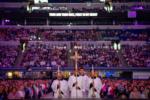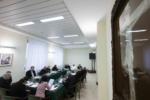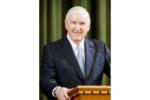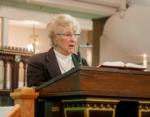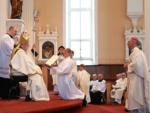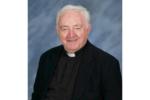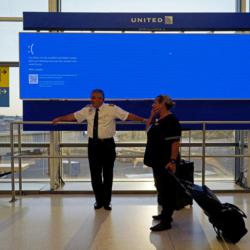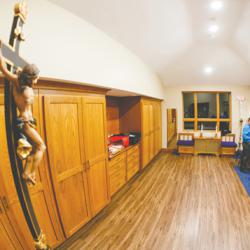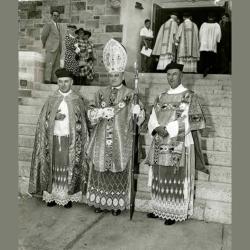Pope leads Angelus from his residence because of illness
VATICAN CITY (CNS) -- Explaining that he had a "problem with inflammation of my lungs," Pope Francis led the recitation of the Angelus prayer from the chapel of his residence rather than from the window of his studio overlooking St. Peter's Square.
But he had an aide, Msgr. Paolo Braida, sit next to him in the chapel Nov. 26 and read his meditation on the Sunday Gospel and his special greetings and appeals.
The Vatican press office had issued a statement Nov. 25 saying, "Pope Francis underwent a CT scan at Gemelli Isola Hospital in Rome to rule out the risk of pulmonary complications. The test yielded negative results," and the pope returned to his residence. Earlier in the day, the press office said he had canceled his morning appointments "due to a slight flu-like condition."
In a direct broadcast to the square, the 86-year-old Pope Francis told the thousands of people gathered there that "today I cannot come to the window because I have this inflammation problem in my lungs."
Instead, he introduced Msgr. Braida and revealed that anyone familiar with his Sunday Angelus talks would know Msgr. Braida, who usually is the person who drafts those texts.
Pope Francis coughed several times during the broadcast and had what appeared to be an IV port covered with a bandage on his right hand. But he recited the Angelus and took the microphone back from Msgr. Braida to wish everyone viewing a happy Sunday and a good lunch and to ask for their prayers.
In the text read by Msgr. Braida, Pope Francis said he still intends to travel to Dubai, United Arab Emirates, Dec. 1-3 to address COP28, the U.N. climate change conference.
Climate change "endangers life on Earth, especially future generations. And this is contrary to the plan of God, who created everything for life," the papal text said, adding thanks to people who pray for his trip and those committed to "safeguarding our common home."
The text also drew people's attention to the previous day's commemoration in Ukraine of "the Holodomor, the genocide perpetrated by the Soviet regime which, 90 years ago, starved millions of people to death."
"That excruciating wound, instead of healing, is made even more painful by the atrocities of the war that continues to make that dear people suffer," the text said.
The pope also gave God thanks for the temporary truce between Israel and Hamas, and the release of some of the hostages held by Hamas in Gaza. "Let us pray that all of them will be (released) as soon as possible -- think about their families! -- and that more humanitarian aid enters Gaza."
"For all peoples torn apart by conflict, let us continue to pray without tiring, because prayer is the force for peace that breaks the spiral of hatred, breaks the cycle of revenge and opens up unhoped-for paths of reconciliation," he said.
As the church celebrated the feast of Christ the King, the Gospel reading was Matthew 25:31-46 on how people will be judged by what they did for Jesus in giving food to the hungry or visiting prisoners or welcoming the stranger.
Christ is a king who counts as his friends not those who increase his wealth or power, but those who care for the poor, the homeless, the sick and the migrant, whom he loves, the papal text said.
"The Gospel today tells us that the 'blessed' are those who respond to these forms of poverty with love, with service: not by turning away, but by giving food and drink, clothing, sheltering, visiting; in a word, by being close to those in need," it said.
Jesus' "royal court" is wherever people suffer, the text continued. "And the style with which his friends, those who have Jesus for Lord, are called to distinguish themselves is his own style: compassion, mercy, tenderness."


